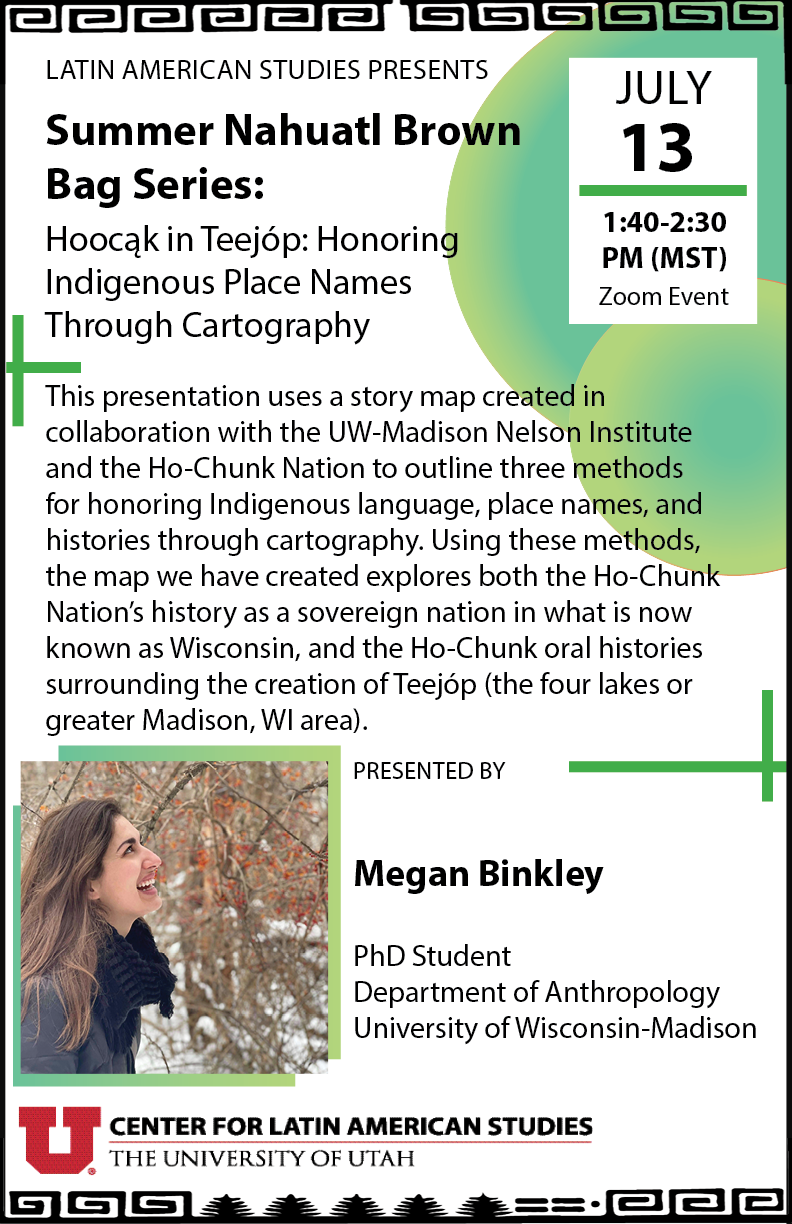 Hoocąk in Teejóp: Honoring Indigenous Place Names Through Cartography
Hoocąk in Teejóp: Honoring Indigenous Place Names Through Cartography
Tuesday, July 13 | 1:40-2:30 p.m. MST | Zoom
This presentation uses a story map created in collaboration with the UW-Madison Nelson Institute and the Ho-Chunk Nation to outline three methods for honoring Indigenous language, place names, and histories through cartography. Using these methods, the map we have created explores both the Ho-Chunk Nation’s history as a sovereign nation in what is now known as Wisconsin, and the Ho-Chunk oral histories surrounding the creation of Teejóp (the four lakes or greater Madison, WI area).
Megan Binkley is a graduate student in the Archaeology PhD program at the University of Wisconsin-Madison, under the supervision of Dr. Sarah Clayton and Dr. J. Mark Kenoyer. Megan’s research interests include Mesoamerican archaeology during the Classic Period (AD 250-AD 900), archaeological cartography, ethnoarchaeology, and developing archaeometric methods for accessing perishable craft industries in societies lacking ethnohistoric records. Megan is currently collaborating with the Ho-Chunk Nation, the UW-Madison Nelson Institute, and the UW-Madison Biotechnology Lab to map ancient Ho-Chunk travel routes and develop chemical analysis methods for detecting dye and colorant residues in archaeological ceramics.
Summer Nahualt Brown Bag Series
The Center for Latin American Studies (CLAS) at the University of Utah holds an annual Brown Bag Lecture series as part of its Summer Nahuatl Language and Culture Intensive Program. In an effort to create a network of indigenous studies scholars, CLAS organizes weekly Brown Bag Talks with a variety of speakers ranging from the program’s Nahuatl program instructors, U of U faculty, external academics, as well as participating students.
